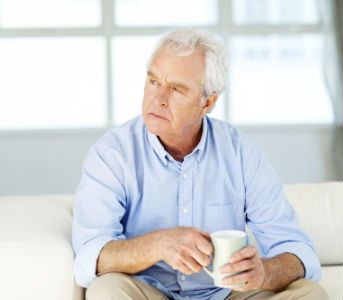Although physically older people are no more susceptible to depression and anxiety than the general population, other factors such as increased physical health problems, chronic pain, social isolation and loss of relationships, jobs, and independence can all mean that staying mentally healthy can be more challenging for the aged.
Staying socially, mentally and physically active are all good ways to help prevent depression and anxiety.
It is important to remember that depression and anxiety is not a normal part of ageing, and it can be treated just like it can in younger people.

Symptoms
- Personality change
- Susceptile to depression
- Prone to withdrawl into self
- Sudden fluctaion of moods
- Appears confused
- Low concentration
- Tires or becomes upset or anxious more easily
- Does not cope well with change
Treatment
Seniors should seek medical and psychiatric evaluations in order to gain specific diagnosis. Following the assessment, a treatment program is individually designed taking into account the person's needs, cognitive abilities and exisitng strengths and skills.